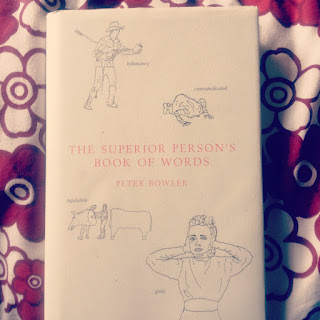I thought I’d post up a recent
article I wrote about the novel Unless by Carol Shields (probably the author
that has had the most influence on my development as a writer over the past few
years. My mum found her, quite serendipitously in our local library about eight
years ago; often the best things are stumbled upon by accident).
The article came
as part of a series in the arts section of the paper, where different writers wrote about their ‘essential read’ each issue. It’s not so much a review, as a
reflection... so have a read, if y'like.
♥
Essential Book: Unless by Carol Shields
(From the Strathclyde Telegraph. Edition 6. May 2013)
When I first read Unless
– the little-known, but quietly powerful last novel of Canadian author, Carol Shields
– I was sixteen and realised, almost straight away, that this wasn’t like most other
books I’d come across. It wasn’t just ‘a good story’ or ‘an interesting idea’.
It wasn’t simply escapism, or a nice alternative to television-watching. This
wasn’t going to be the sort of book that would slip in and out of my life,
hardly leaving a trace. No. Before I was even halfway through, I knew that this
was one of those rare novels that (to borrow a phrase from Pablo Neruda) would somehow,
softly, ‘befriend my existence’.

Unless tells the
story of Reta Winters – writer, mother, translator, wife – who finds the rhythm
of her life disrupted when her nineteen year-old daughter, Norah, drops out of
university without warning, choosing instead to sit cross legged on a street
corner wearing a sign that reads: ‘goodness’. Norah’s withdrawal from normal
life distresses and perplexes Reta, and the narrative follows her attempts to come
to terms with the new shape her life has taken, and her struggles over how to
live now.

Muted, reflective, and often lyrical, the novel engages
with a number of powerful ideas; the notion of ‘goodness’, for example, comes
up repeatedly. ‘I don’t know what that word really means,’ Reta writes in the
first chapter, and finding out becomes a preoccupation for her, leading her to
question how ‘goodness’ compares to the notion of ‘greatness’, an ideal more
commonly sought after in society. As well as an exploration of this word, the
novel also meditates on themes such as the life of a writer, the loss of
innocence, and women’s place in society, a society which seems determined
to treat them as if they are invisible.

While the themes in the novel may sound heavy, the book is
never pretentious or ‘preachy’. Instead, Shield’s deceptively light, and often
very funny, prose is honest, at times even wise. What I love about Shields’
writing is the subtle way it affirms, without sentimentality, the value of
‘ordinary’ experience. So much of her writing – both here and elsewhere in her
fiction – is about ordinary people doing ‘ordinary’ things: going to the
library, buying a scarf, taking the train, going out for dinner. All seemingly
small activities, and not very ‘literary’ perhaps, but Shields’ treats these
subjects with an element of quiet dignity. It is through her focus on ‘the everyday’
that she reveals what is important in her characters’ lives, and here that she
touches on truths about what it means to be human.

While Reta openly admits that
she is ‘going through a period of great unhappiness and loss’, her voice never
rises to the pitch of gushy self-pity, nor drops into cold cynicism. Instead,
her tone throughout is muted, hushed, honest, even hopeful. The novel seems to
acknowledge the idea that unhappiness is not a ‘thing’ set apart from everyday
life; instead, it is something which happens in the midst of it and Reta’s
reflections on this, and her continued engagement with the ordinary details of
her life that make her such an engaging and authentic character, one with streak
of gentle courage.

One word, one thought, I keep coming back to when trying
to capture the essence of Unless is: ‘quietness’.
It is a quiet novel, one that causes a veil of quietness to fall over you while
you are reading. The title itself – ‘unless’ – seems to whisper, to hold its
breath. ‘It flies like a moth around the ear,’ Reta writes, reflecting on the
word, ‘you hardly hear it, and yet everything depends on its breathy presence’.
I have read Unless numerous times now,
and each time I come away feeling a sense of renewal. Unlike other novels
where, after putting them down, I find myself wishing I was living a different
life – one that was a little bit more thrilling, a little bit more wild or
romantic – after reading this book, I find myself more attentive, more
thoughtful, more curious about the life I am already living. It is a beautiful
book, one that deeply resonates; if that isn’t the definition of an essential
read then I don’t know what is.
♥
(Pictures: various snapshots from around my bedroom recently)



















































